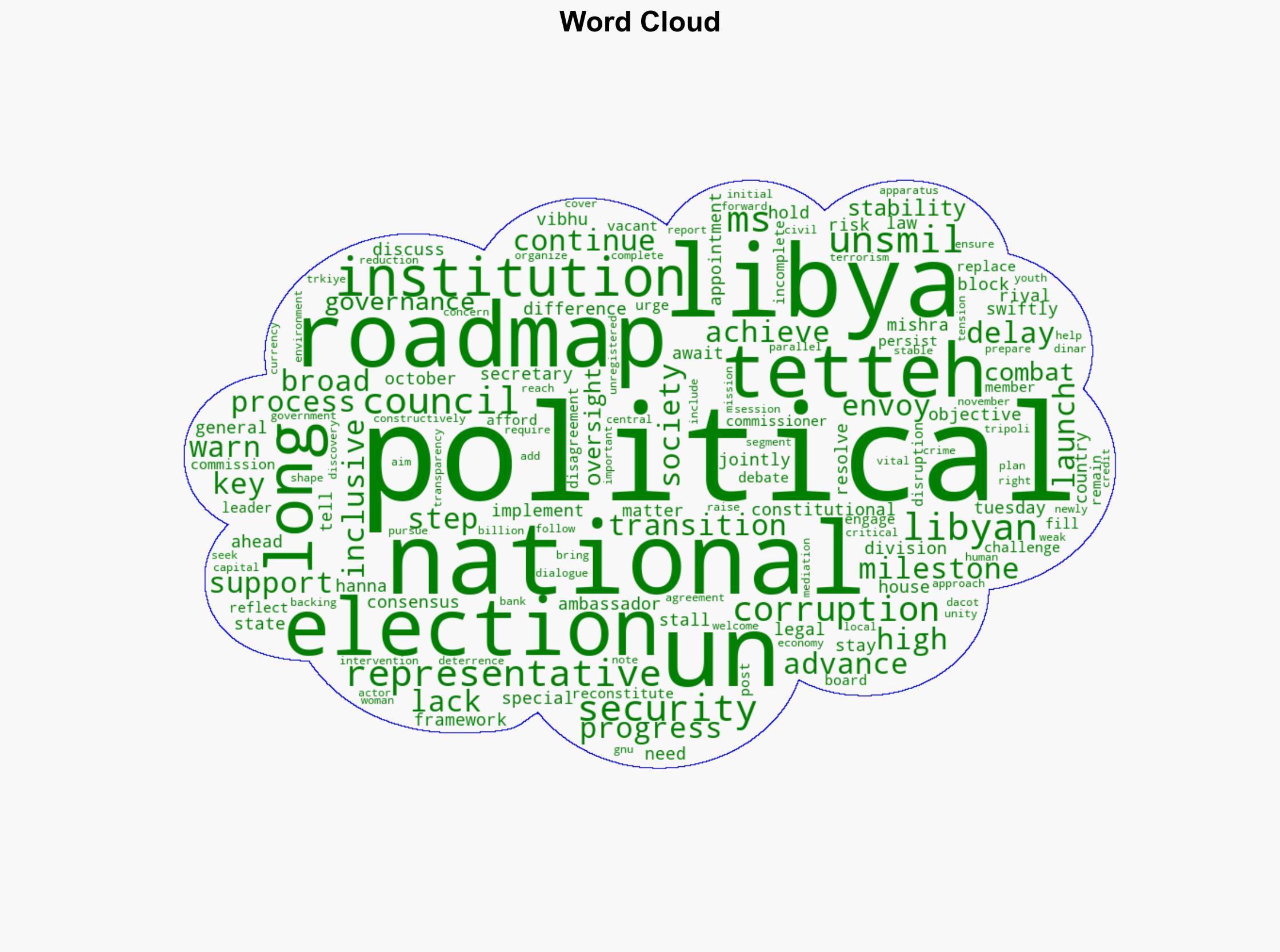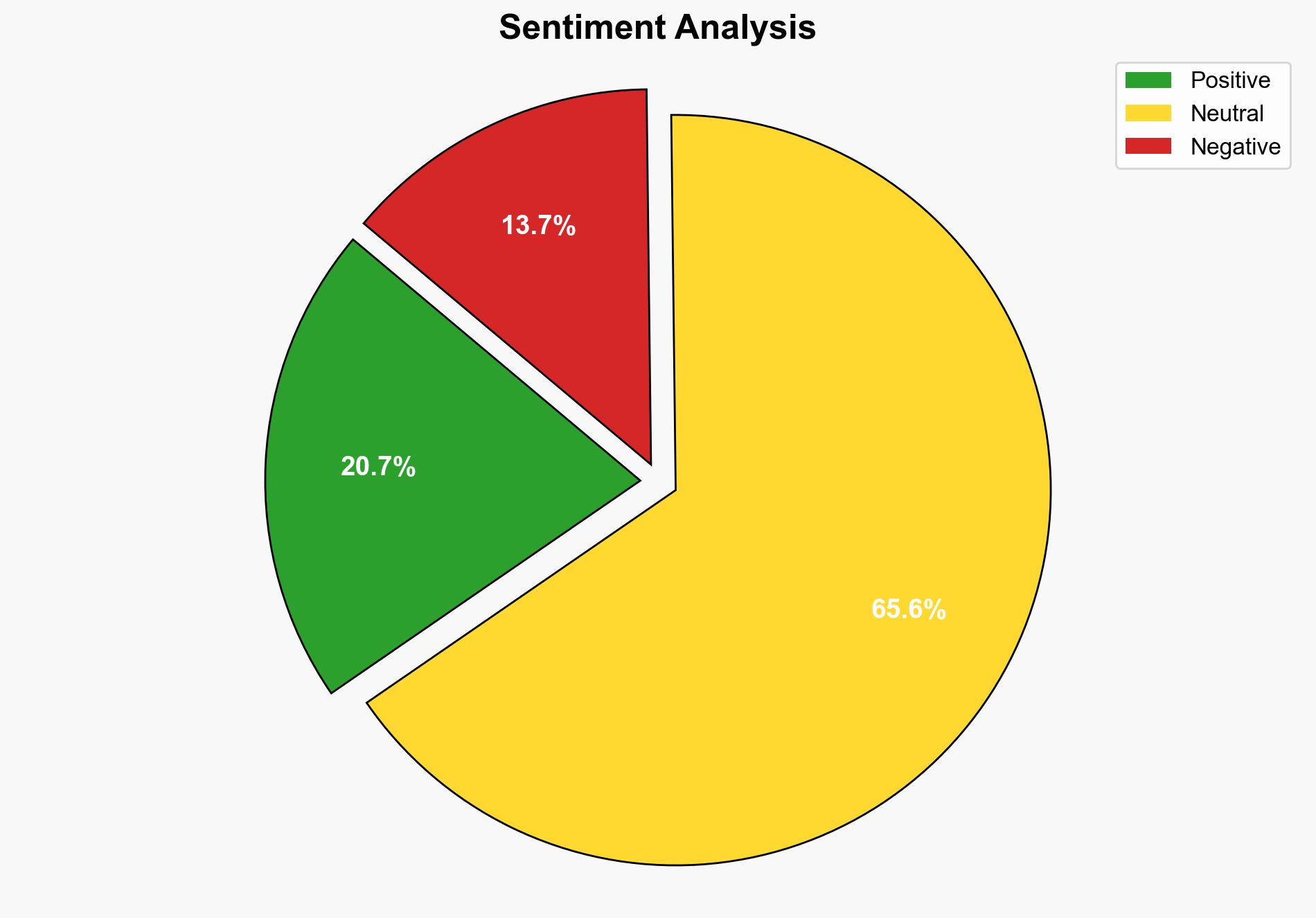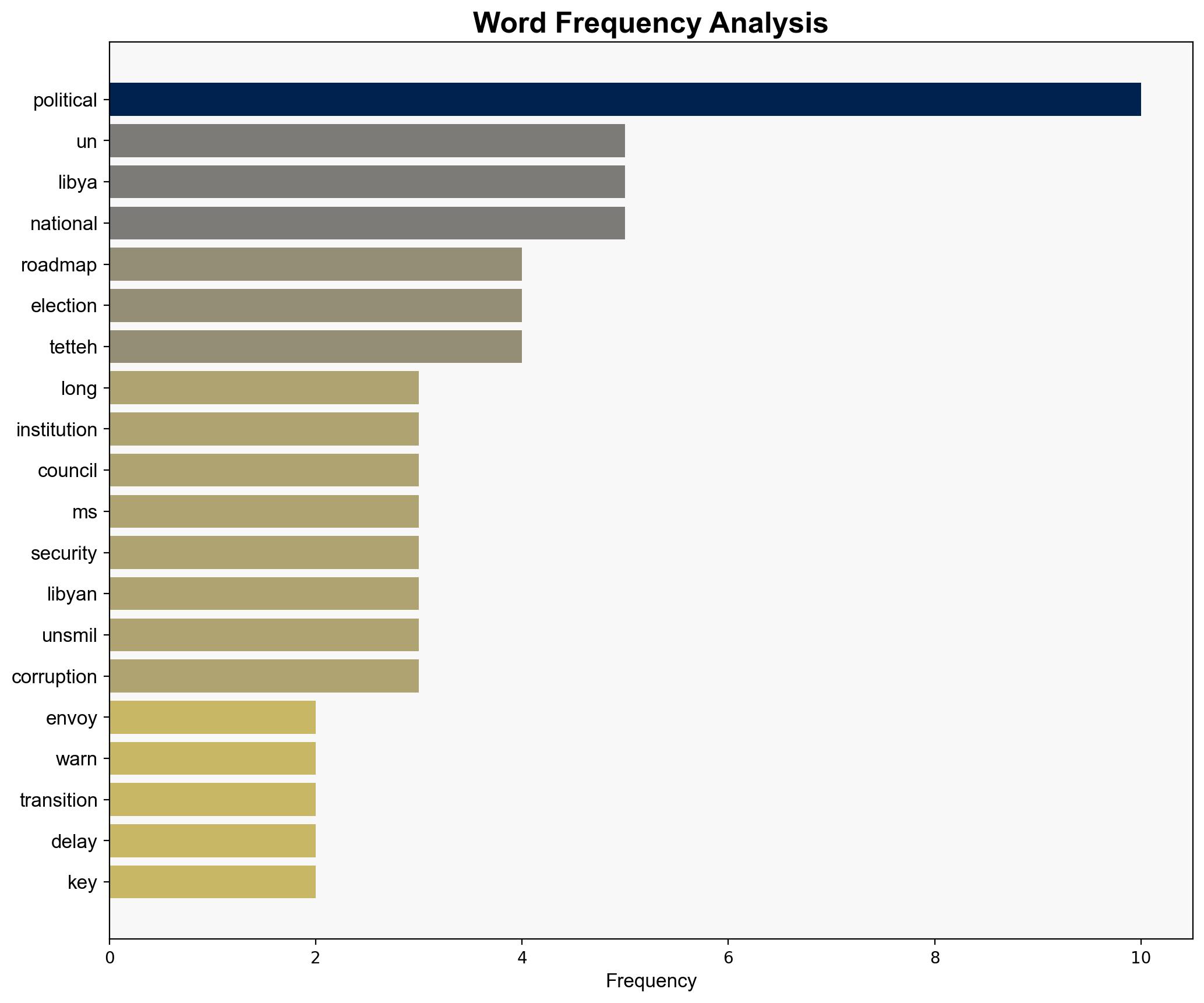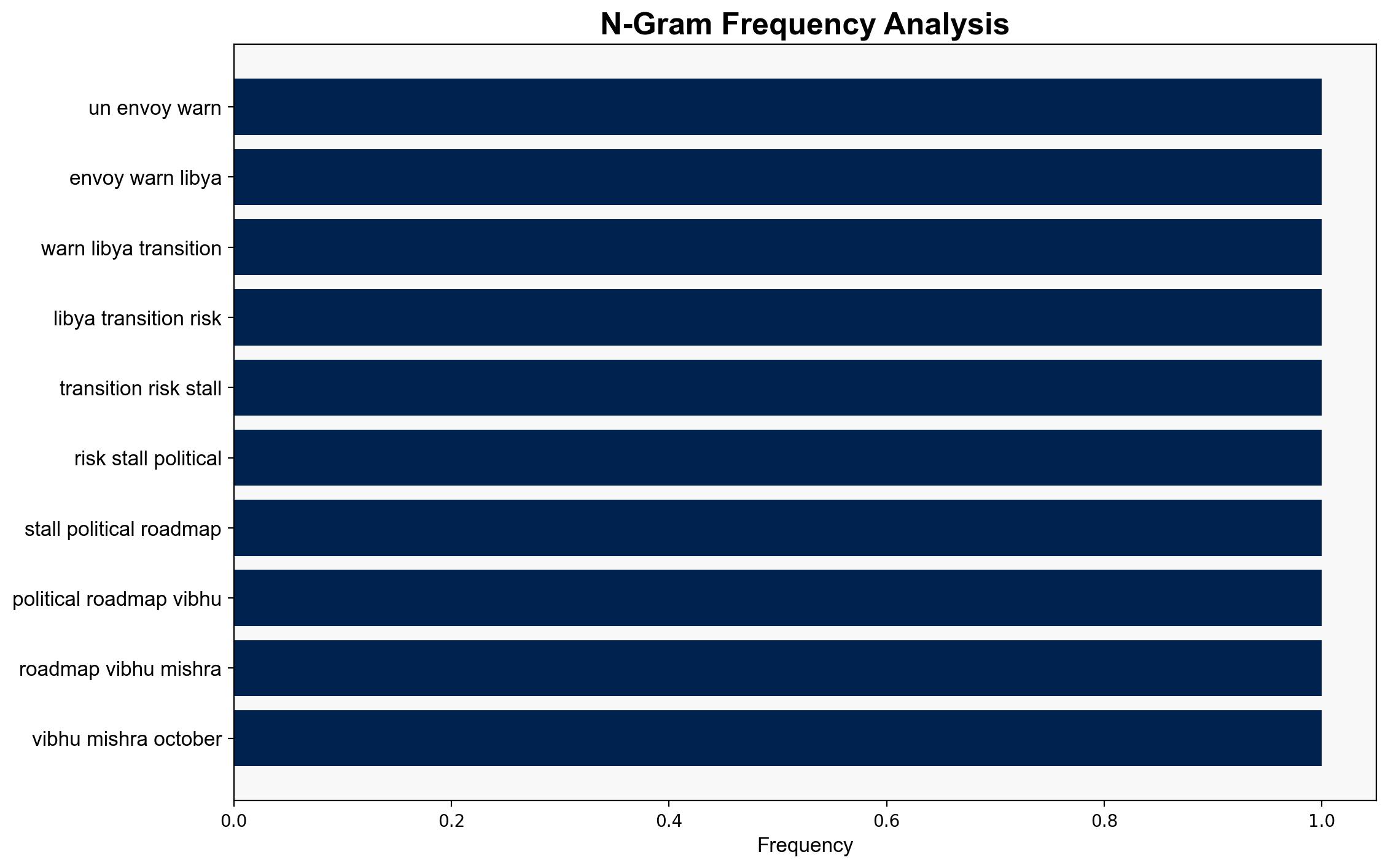UN envoy warns Libya’s transition at risk amid stalled political roadmap – Globalsecurity.org
Published on: 2025-10-21
Intelligence Report: UN envoy warns Libya’s transition at risk amid stalled political roadmap – Globalsecurity.org
1. BLUF (Bottom Line Up Front)
The most supported hypothesis suggests that Libya’s political transition is at significant risk due to entrenched institutional rivalries and lack of political will, which may lead to prolonged instability. Confidence level: Moderate. Recommended action: Intensify diplomatic efforts to mediate between rival factions and prioritize the establishment of a unified legal framework for elections.
2. Competing Hypotheses
Hypothesis 1: The stalled political roadmap in Libya is primarily due to entrenched institutional rivalries and a lack of political will among Libyan leaders to engage constructively. This hypothesis is supported by ongoing divisions between the House of Representatives and the High Council of State, which block key steps needed for national elections.
Hypothesis 2: External influences and geopolitical interests are the primary factors stalling Libya’s political transition. This hypothesis considers the role of international actors and interventions, such as Trkiye’s involvement, which may be influencing internal dynamics and delaying progress.
3. Key Assumptions and Red Flags
Assumptions:
– Hypothesis 1 assumes that internal political dynamics are the main obstacle, with external factors playing a secondary role.
– Hypothesis 2 assumes that external actors have significant leverage over Libya’s political process.
Red Flags:
– Lack of detailed information on the specific nature of external interventions.
– Potential bias in attributing delays solely to internal factors without considering external influences.
4. Implications and Strategic Risks
The continued delay in Libya’s political transition poses several risks:
– Prolonged instability could lead to increased violence and humanitarian crises.
– Economic stagnation may worsen due to governance issues and corruption.
– Potential for increased influence of extremist groups exploiting the power vacuum.
– Geopolitical tensions may rise as external actors vie for influence in Libya.
5. Recommendations and Outlook
- Engage in multilateral diplomatic efforts to mediate between rival factions and facilitate dialogue.
- Support the establishment of a unified legal framework for elections to ensure political consensus.
- Scenario-based projections:
- Best Case: Successful mediation leads to elections and a stable government.
- Worst Case: Escalation of conflict and further fragmentation of political entities.
- Most Likely: Continued stalemate with sporadic progress and setbacks.
6. Key Individuals and Entities
– Hanna Tetteh
– Vibhu Mishra
– House of Representatives
– High Council of State
– Government of National Unity (GNU)
– UNSMIL (UN Support Mission in Libya)
7. Thematic Tags
national security threats, geopolitical dynamics, regional stability, political mediation





